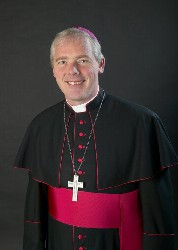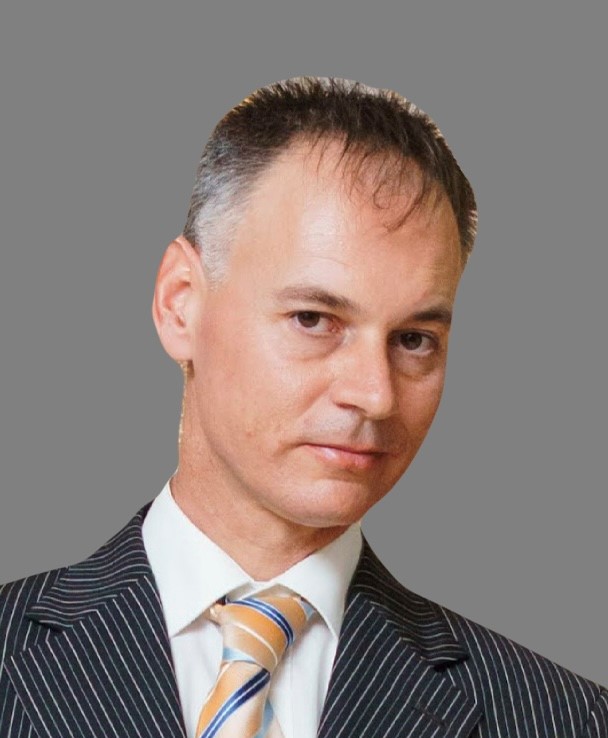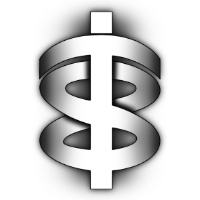ITEST Webinar
Black Holes and Free Will:
How Faith and Science Rely on One Another
This webinar was presented on December 14, 2024
Our presenters
Most Reverend Everard de Jong
Science and Christian Faith: Two Methods, Two Complementary Truths and Certitudes

Bishop Everardus Johannes de Jong is Auxiliary Bishop of Roermond (Netherlands) and Titular Bishop of Cariana. He is also Apostolic Administrator of the Military Ordinariate of Netherlands. Bishop de Jong studied electronics before entering the seminary. After his ordination to the priesthood, he studied two years of philosophy at the Angelicum in Rome, and three years in Washington, DC, at Catholic University. He did his doctorate on the scientific methodology of Galileo Galilei (1564-1642), comparing his early Notebooks, dealing with Aristotle’s Analytica posteriora, with the writings of the Paduan Aristotelian philosopher Giacomo Zabarella (1533-1589). He is planning to open his Edith Stein Centre for Faith and Science soon (see: https://www.edithsteincentrum.nl).
Abstract
One of the tasks of a philosopher is to reflect on the meaning of terms. In this case, faith and science are two interesting concepts, which, when analyzed and laid bare, deliver some remarkable possibilities of contrast, complementary perspective, and overlap. The perceived meanings that seem to split them apart are that faith is associated with belief and opinion, and science with sigma 5 certitude. The latter is certain, the former not.
Science indeed progresses through intersubjectively verifiable experiments and mathematical models. What is more sure than that? However, scientists cannot but accept certain first principles – that they believe in – of the particular science that they study, and upon which the certainty of their whole scientific endeavor is built. These principles themselves are, within their particular science, not demonstrable (cfr. Aristotle and Gödel) but taken as evident. Saint John Henry Newman (1801-1890) saw this evidence based on the illative sense: a more or less unconscious process. Many scientists, moreover, think science is always developing, thereby implying that the present knowledge, as a basis for a future science, is not certain at all.
On the other hand, faith is often associated with belief in the sense of opinion, which is regarded as not certain. This association might be quite questionable, too. There are far more saints that have died for their faith than scientists for their science. The certitude of their religious knowledge of another spiritual world was far greater than their trust in physical facts (their biological death). Of course, there are various religions. And not all do have the same truth value. Some are based on myths, with deities that do not really exist, others on philosophical insights that are questionable. Of course, there can be only real certitude when we are convinced of true propositions. Christianity has an exceptional basis of this truth and certainty, because of both sensory perceptible miracles and inner supernatural experiences on the one hand and a logical coherence at the other. Even if we know that not everyone will be able to grasp the supernatural meaning of miracles, and inner experiences can be deceiving, both can be perceived as revelations of a higher reality through grace. As Blaise Pascal (1623-1662), in his Pensées, said: there is enough light for those who believe, and darkness who do not want to…
In the end we can conclude with Thomas Aquinas (Summa Theologica) that there are two types of sciences: the natural and the supernatural. Both have their own method. The first being based on natural experience and reason, the second founded on divine revelation. Both can be true. Sometimes they correct, sometimes they overlap and strengthen one another (cfr. archaeology, medicine, astronomy). And if so, they cannot contradict each other (cfr. St. Pope John Paul II, Fides et Ratio). Philosophy can often bridge the seemingly insurmountable differences, e.g. in case of proving the presence of teleology in nature as a bridge between the (quantum)mechanically described world of science and the perception of providence in the world of Christian faith.
Mattheus Uijttewaal, PhD
Demystifying Science and restoring a proper relationship with our Faith

Matthé was born in 1979 in the Netherlands and grew up on a dairy farm with four siblings. He is a cradle Catholic and member of the International Emmanuel Community, a public association of the Faithful of Pontifical Right. In 2007 he received a doctorate in theoretical physics from the Radboud University of Nijmegen and continued to be scientifically active in Germany, first at the Max Planck Institute for Iron Research in Düsseldorf and then at the Technical University of Clausthal. His total of ten years of scientific research resulted in a collection of articles with an H-index of 10, a total of 900 citations with three articles even having been cited more than 150 times each. Afterwards, Matthé dedicated his time to other goals: he was a social volunteer in the USA for two years, and then back in the Netherlands became a specialist on the relation between (the Catholic) Faith and (natural) Science by means of a blog, brochures, and lectures. He also put some effort in making the work of the British Inkling and lay theologian Charles Williams more accessible and better known. During the pandemic he literally broadened his horizons in mainly Latin countries, also to recover his Spanish. After participating in a missionary church project in Münster (Germany) in 2023 for half a year, Matthé returned to Latina-America and currently lives in Santa Cruz (Bolivia) with his wife Yasmina.
Abstract
In society nowadays many have an almost mystical attitude towards Science, and scientists are practically seen as oracles of Truth. Consequently, (the catholic) Faith in order to be acceptable needs to show its correspondence with (currently understood, mainstream) Science. The lamentable consequences for both Faith and Science will be shown here and a proper relation between both restored, something which is highly overdue. In the process quite some public knowledge will be turned upside down.
Webinar resources
Mattheus Uijttewaal’s Resources
Mattheus Uijttewaal’s blog: www.orakelaar.blogspot.com
Article in Dutch Diocese Journal: https://sint-janscentrum.nl/kringblad-zomer-2019
Presentation in Germany: https://www.emmanuel-house.de/dinnerateight/
Article on Dutch Science-Faith Website: https://geloofenwetenschap.nl/100-katholieke-wetenschappers/
Interview in Dutch Charismatic Journal: https://www.kcv-net.nl/bouwen-aan-de-nieuwe-aarde/doel-en-inhoud/in-deze-editie/2016-1-het-vrije-leven
Bishop Everard de Jong’s Resources
Edith Stein Centre for Faith and Science
